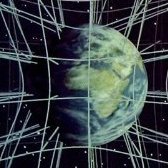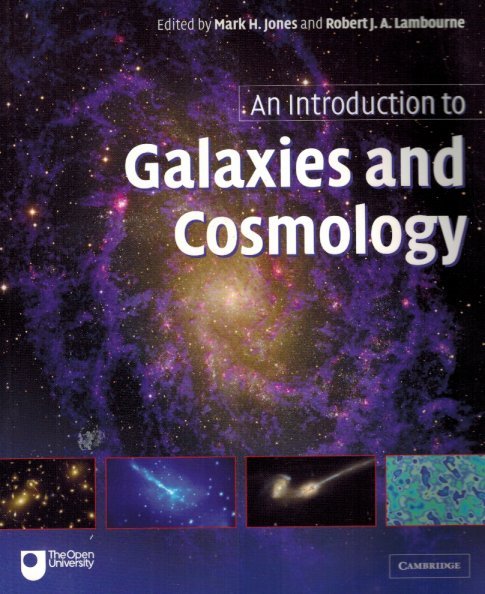Leaderboard
Popular Content
Showing content with the highest reputation on 09/09/21 in all areas
-
Now it would be nice if you would comment on the arguments in that link. Or on my old posting I linked to. Then we could get a real discussion, instead of making sneering remarks to each other. Just to note: one of the most important viewpoints in this article is the answer on the OP question I began with: philosophy and physics have different topics. And, as I hope you also really read the article yourself: Albert really is a philosopher and a physicist. So it would be worth to read his criticism on Krauss, who is 'just' a good physicist. Just to be clear: I do not approve of the cynical remarks of Davy ('seemingly crazy' as just one example). But I think he laid his finger on a sore point: physicists do not speak with one voice in this matter, sometimes even a single physicist spouts contradicting views. I don't know if somebody noticed in a previous posting of mine in this thread: in the 'Magnetism' video of Feynman makes very good points about such 'what is' questions. On the other side, in his QED series, he states clearly: 'This is how nature really works'. If he would have been consistent, he should have said something like 'this description really works'. From your Weinberg quote: To answer the question: in first order, no, of course not. Different topics, y'know. Physicists study nature, and try to develop theories that in the end describe physical observations. However, in second order, sure they can profit from philosophy. Not just by knocking on the doors of the philosophy department and ask for help, but by reflecting on the basics of their methods. Is there no heavy discussion among physicists if the idea of the multiverse is still science? Is there no heavy discussion among physicists if it useful to spend so much resources on string theory, because it has not made one single empirically testable prediction? These are not discussions about how nature 'really works' or 'correctly described' or how you want to name it. These are philosophical discussions. I can only add, that from my experience, one can profit having some philosophical background when discussing such topics. Not because one finds ready answers in philosophy, but because it gives a mindset to improve the quality of the discussion. I do not plead that physicists should simply hear on what philosophers have to say; I plead to name some activities of physicists for what they really are: philosophy. Eise says 'might be'. This is a very ill quantified statement. A Philosopher's statement (no offence intended) I think you misunderstood my point. The sentence is an introduction to a simple thought experiment, which is described in the sentence thereafter.2 points
-
1 point
-
It's not homework. It is the responsibility that comes with participation on a site that has high standards.1 point
-
The rep system's worst flaw is a mixed blessing, imo. When we get someone who joins who has a TON of pop-sci misinformation stuffed in their heads and starts their journey to the Wild West Guesswork Factory by posting here, it's often easier for many to downvote, jaded by all the other posters who start their "theory" with cracked science. We've had lots of folks start that way and eventually realize the gaps in their knowledge, but many leave because they get such a bad rep so quickly. I wonder if we might help some of those folks, but then we get so many that have spent "years" on their non-mainstream "theory of everything", so I suppose some folks don't want to learn as much as they want to be right. If there were members who only voted but didn't post, we'd probably consider that abuse of the system. It doesn't happen.1 point
-
Some people may take a second or third look at their posting style if it's not obvious to them. It still blows me away how many folks whip out a strawman argument like the whole discussion isn't written down. Staff only monitors the rep system for abuse, like when someone uses all their votes for a few days on a single member, no matter what's been posted. Most of the rest is usually adjusted by the membership. I'm not sure why there's so much pushback in that regard, since it's usually pretty obvious when someone does/doesn't deserve the vote they got.1 point
-
The IPCC does not recommend policy the IPCC determines the state of knowledge on climate change. It identifies where there is agreement in the scientific community on topics related to climate change, and where further research is needed. The reports are drafted and reviewed in several stages, thus guaranteeing objectivity and transparency. The IPCC does not conduct its own research. IPCC reports are neutral, policy-relevant but not policy-prescriptive. https://www.ipcc.ch1 point
-
This suggests physics as a monolithic effort, and it's not. Physics has its individual disciplines, some with no overlap, and there is the divide between theory and experiment. Some work is basic research, other work is applied research. I wouldn't be surprised to find that there's a significant chunk of physicists that don't speak at all on the matter, because their attitude is "meh" "So much resources" sort on string theory? What level is that, and what fraction of the budget for all physics does it represent? From what I can tell, the big conference on string theory draws about 500 attendees. That's not a big conference. Not all attend every year. So maybe there are 2000 string theorists. Out of how many physicists? A million? Theorists typically do not require big budgets, so the resources drawn by string theory would likely be quite small as a fraction of the overall research spending. If there's no heavy discussion, part of that would be because nobody's funding is in danger - if you're doing applied research, your source probably isn't competing with string theory sources, and not in a way that you can do much about it. (e.g. if your applied research money comes from DARPA, who cares about string theory funding coming from somewhere else?) String theory, and multiverse, and some other topics get an outsized amount of scrutiny in popular press, but it's not representative of the physics community.1 point
-
You have no way of knowing why you were down voted anonymously. So what is the value in it if you don't know why. If it's bad enough you should know why, isn't that better left to the mods than some random observer?1 point
-
On this forum, they communicate in English, take the trouble to make a translation. With the help of Yandex-Translator, it will take a couple of minutes https://translate.yandex.ru ( На этом форуме общаются на английском языке, потрудитесь сделать перевод. С помощью Яндекс-Переводчика это займет пару минут https://translate.yandex.ru)1 point
-
One more thought occurs. Much use is made of the Greek alphabet so get yourself a copy and keep it handy to refer to and become familiar with (unless you already speak Greek of course). Both upper and lower case are used. https://www.rapidtables.com/math/symbols/greek_alphabet.html1 point
-
If you have high school algebra, your next step will be to teach yourself calculus. I recommend this: https://ocw.mit.edu/ans7870/resources/Strang/Edited/Calculus/Calculus.pdf It’s very readable, and has loads of exercises to work through. After that then I cannot recommend MIT’s Open Courseware highly enough (just Google it) - there’s a wealth of material there to teach yourself physics and math from the basics up to the most advanced. That should keep you busy for a couple of years1 point
-
It annoys me also. If you disagree with someone's position, tell them why. I don't like it when a downvote is used instead of a good argument, or when you lack an argument. Does the downvote change their mind ? Or is it just a way for you to take out your frustrations ?1 point
-
After a couple months of the reputation system, and watching a couple of people get downvotes apparently just because someone disagreed with them, I got a bit torqued and wrote this: The practice of anonymous downvoting here strikes me as mean-spirited and passive-aggressive. If you disagree, why not just say so, and move on without handing out a demerit badge? If you have nothing useful to say, just refrain from upvoting. I think having this judgmental tool to brand others with belongs more to totalitarian China than to a free and civil forum. (I used the downvote once here, a short time after joining, then cancelled my downvote a few hours later, disgusted with meself) JMO, the potential for abuse of such a feature is high. Please don't put a scarlet D on my forehead!1 point
-
Like you, I'm also an amateur enthusiast, probably though far older. Some good advice from those two gentlemen [using the term loosely 😉]above me. All I can do is recommend a couple of good books....Black Holes and Time warps by Kip Thorne, and another is The First Three Minutes by Stephen Weinberg. You could also try for some basic stuff, A Brief History of Time by Stephen Hawking.1 point
-
I normally find some books or other material to refer when folks ask. But this is a really tall order that all but has me stumped. But welcome anyway and if you have queries this is a good place to just ask. In the hope that your basic algebra included at least simple equations and their rearrangement I suggest you look into this book. The maths is very gentle and there is a glossary/explanation of all the (astro)physics you will need, plus lots of photos and full colour diagrams. The books covers a good range of topics without being too difficult. Science books are expensive and astro stuff goes out of date very quickly so you might like to look into a second hand copy. I also suggest you initially beware of material on relativity, gravitation particle theory. These will draw you down a never ending rabbit hole/warren of increasing complexity that you will not have the maths to understand so will gain entirely the wrong impresion. Go well in your study enterprise.1 point
-
I agree. Learning the basics of forces, momentum and energy (mechanics), gravitation, thermodynamics and electromagnetism will be important. These are usually covered in introductory physics classes, but might be broken down by topic, depending on where you look. It’s also possible that an intro astrophysics book/course would cover these; you’d need to check. You’ll need a course that has you work problems. The books geared to popular audiences tell you about the concepts, but you need to be able to apply them to different situations.1 point
-
Would "Does physics (try to) describe reality?" be considered more of a scientific question or a philosophical question? Is this question amenable to employment of "the scientific method"? Apparently not. Is there any experiment we might perform to shed some light on the question? Apparently not. It would appear, then, that the question is more philosophical in nature than scientific. So, with regard to your comment above, as thanks for offering my philosophical "take", among other slings and arrows of outrageous fortune, I got accused of being obtuse, suffering from comprehension issues, various other insults sprinkled liberally throughout the thread (to which, some of you may have noticed, I invariably turned the other cheek), a downvote or two, and a rap on the knuckles from a moderator. Ponder that while I ponder the limits of hypocrisy here.1 point
-
Instead of replying here, which would be off topic, I have started another thread1 point
-
Graph theory is a geometric way of representing relations. The most basic is the elementary relation is the connection. eg A is connected to B, but A is not connected to C etc. Much of elementary graph theory - the travelling salesman, konigsburg bridges etc is devoted to solving simple networks possessing only the connectivity relation. When programmed as matrices for computing this use what is called the incidence matrix. This is not much use for spacetime however. The next up is the weighted connection and we can use the invariants as weights, noting the in spacetime every point is connected to every other point. 'Graphs' were developed for solving sets of simultaneous equations by geometric reduction proceedures. These (not to be confused with schoolboy xy plots as graphs) have been called flow graphs and set of quite sophisticated equations can be solved this way both linear and non linear including self regenerative equations. I have speculated before (though not here) that these would hold out much hope for incorporating the more complicated relations inherent in say GR. They have been used to do this with the stress tensor, that Mordred was so fond of. A pity he is also not with us for this discussion.1 point
-
(My emphasis) Interesting. But what are you going to do with all those diffeomorphisms? Differentiability is hard-wired into GR.1 point
-
I think this is a matter of internal consistency. We know from experiment and observation that nature obeys certain fundamental symmetries - for example, from observing and playing around with a large number of particle interactions, and even before making any specific models, we will eventually notice that all these interactions are subject to what’s called CPT symmetry. Any model of particle physics we now develop must therefore reflect this symmetry (the current Standard Model does this). As it turns out, CPT symmetry implies that space time must have a certain local symmetry as well, called Lorentz invariance (this can be formally proven, and has been experimentally shown to high accuracy). This symmetry is not compatible with a Euclidean geometry - you need something that has different signs in the time and space parts of the metric, making it non-Euclidean. So you need non-Euclidean space time for internal consistency, or else there would be a conflict between particle physics and macroscopic physics. Poincare could not have known this, since the necessary observational data was not yet available to him. The other thing is that the strong and weak interactions are not invariant under rescaling, so shrinking and expanding rulers are not even an option. However, it should be noted that, given non-Euclidean space-time, you can describe gravity in ways that don’t use curvature - notably with a concept called torsion. Einstein himself tried this, but failed for technical reasons. Only in the 1960s was a functioning model along these lines developed; it’s called Møller gravity. Spacetime here is completely flat, and gravity is due to torsion alone. The physical predictions are the same as in standard GR, because they obey the same symmetries. Which, of course, further underlines my earlier point that the behind the scenes machinery of GR - such as curvature tensors - does not necessarily map into any element of reality. You can do away with curvature completely, and yet still obtain the same gravitational physics through other geometrical means. What both models share are again the underlying symmetries.1 point
-
I've seen animations showing a multiverse of big bang blobs drifting in the bulk, or budding off another universes. Expansion happens, but if the multiverse model is correct then you will certainly have big bang "leading edges" expanding away from a center region. Each universe will have a center and edges. Beyond the edge of a universe is simply the absence of matter or energy until you reach the next big bang. I don't have any problem with infinity. People who say there is no center or outside the universe are WAG'ing. They are assuming that there is no multiverse. That is a WAG. I just reason there MAY BE higher levels or organization, rather than supposing the universe is the final structure with no center and no edge. You don't know that. Just like particles get smaller. You can split atoms into smaller particles. You can split protons and neutrons into quarks, etc. This is a WAG, but guessing is all we can do beyond the level of observable universe. Solar systems Galaxies Galaxy Clusters Galaxy Superclusters Universes Multiverses "The multiverse is a hypothetical group of multiple universes.[a] Together, these universes comprise everything that exists: the entirety of space, time, matter, energy, information, and the physical laws and constants that describe them. The different universes within the multiverse are called "parallel universes", "other universes", "alternate universes", or "many worlds". https://en.wikipedia.org/wiki/Multiverse Here are universes, with centers and edges, drifting in the "bulk." https://www.bing.com/images/search?view=detailV2&ccid=JThPqP%2bp&id=5B5387756B7B47E7448D1B75D5D0B27B53755333&thid=OIP.JThPqP-psD4jPsTwZZePKwHaEK&mediaurl=https%3a%2f%2fwww.sciencenews.org%2fwp-content%2fuploads%2f2019%2f09%2f101219_ts_reviews_feat.jpg&cdnurl=https%3a%2f%2fth.bing.com%2fth%2fid%2fR.25384fa8ffa9b03e233ec4f065978f2b%3frik%3dM1N1U3uy0NV1Gw%26pid%3dImgRaw%26r%3d0&exph=580&expw=1030&q=images+of+multiverse&simid=608023659644742442&FORM=IRPRST&ck=CA24EE2BDAEC178A07CE1562E97E8825&selectedIndex=42&ajaxhist=0&ajaxserp=01 point
-
My chemistry teacher mentioned that the acidity of HX compounds increases down the group (i.e. HF<HCl<HBr<HI), and I get why it is so (because the atomic radius of the atom increases down the group => bond length increases => less attraction between H+ and X- => donates H+ more readily). But whenever I search for strong acids online, they only mention HF and HCl, while HI is very much stronger than those acids. Why is it like that? Is it just because they are more well known? Or is there another reason?1 point
-
Beecee, this is a lie. Maybe you are trying to rationalize something that you don't understand, but it ends up being a lie. The truth is that religion studies the supernatural and calls it "God". You have serious problems with the idea of the supernatural and have stated it repeatedly all over this forum for years. The only conclusion that I can reach is that you are superstitious and in denial. If you are taking these beliefs of yours and seeing them as comparable to philosophy, then it is clear as to why you don't like philosophy either. This is the only conclusion that the historical facts in your years of posts can support. There is difference and there is sameness -- both are beliefs -- no matter how those beliefs are formulated. The logic of the thinking applies to both of them equally. It is the logic that flew right over your head. This is what Studiot stated: "In the case of Science outgrowing Philosophy, I suggest the scope and extent of scientific knowledge now well exceeds that of philosophic." So that would be why you earn a Ph D in the various subjects of science? That would be a Doctor of Philosophy? Right? Ooh. Maybe one day I can earn a Sc D in philosophy? That would be a Doctor of Science. Right? Beecee, if you don't understand the above, ask someone. Gee PS I don't think that I have a problem being too thin skinned; my problem is different. After a few years in this forum witnessing so much ignorance based in bias in the subjects that I knew, I began to wonder about the other subjects. If I don't know about a subject, would I be able to tell if ideas were slanted because of bias? No. So I lost my faith and trust in this forum and left. I check back once in a while, but I no longer play here.0 points
















